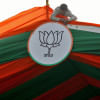How can an Italian court murder Indian democracy?

THE ancients knew their metaphors. They classified the state of a human mind into four categories, or 'humours', based on bodily fluids: blood, phlegm, melancholy and choler [or bile]. It struck me that criticism, or opposition, in a democracy can also be usefully divided into these four conditions. As the second anniversary of the NDA government approaches, all of them are coming into play.
Blood is the first. Like any other body, the body politic also cannot function without free flow of blood, and if the heart and mind of a democracy are in the charge of government then the arteries of opinion are with the estates that can stand up to authority. An Opposition has every right to see everything wrong in any government; exaggeration and twists are part of the weapons of the duel, with Opposition given some indulgence. Government always has the means to smoothen any warp.
Phlegm denotes calm. This is the humour of independent analysts from the sciences of economics or politics. Their verdict will tend to tilt towards the negative, but that only enhances the credibility of the positive when they do praise a government's performance. Those in power appreciate criticism that is not motivated by self-interest.
Melancholy is probably the best description of media's attitude towards power. Journalists like to be sardonic; it gives their queries a sarcastic frisson, and their challenge a combative edge. This is true of perhaps 80 percent of media; the rest are, unfortunately, on the take, and therefore should not be taken seriously. The debate about yellow journalism began with the birth of a free press in the United States and will not end as long as there is freedom of speech. We imagine that censorship is the only solution, but that is not strictly true. The audience also has the ability to reject such journalism: it can stop purchasing a rag, cutting circulation, or turn off a TV set, reducing TRPs. The big problem lies in the fourth humour, bile.
Bile is the bitter, slimy fluid secreted from the liver, and stored in the gall bladder. When bile enters an individual's mind, it turns vicious, and poisons nurtured in frustration creep towards the tongue. An infected person begins to rant instead of respond, accuse instead of argue, vilify instead of explain, froth instead of talk. One television station has already aired a vicious personal attack on the Prime Minister in which accusations were paraded without proof, cloaked in barely disguised malice. Fortunately, such hatred becomes its own enemy; vilification makes a villain of the accuser rather than the target.
It is notable that the proper noun just after bile, in the Concise Oxford English Dictionary, is bilge.
But there is a fifth, and new, humour in democratic Opposition which the ancients never considered, possibly because the theatre of the absurd is a more modern phenomenon. Witness, for instance, Congress reaction to the conviction by an Italian court of Agusta Westland helicopter company executives for giving bribes in the VIP chopper deal with India.
If bribes were given, they were taken. The money was not handed over to any missionaries of charity. It is axiomatic that cash went to those with influence in the UPA government; men with money are not fools. So far, investigators have reached only those Indians at the lower end of the bribe chain, and not the big bananas. But protest trumpets from Congress seem more reminiscent of the Biblical Last Judgement than an Italian first judgement.
Mrs. Sonia Gandhi accused the present government of "murdering democracy" during a demonstration in Delhi, at which incidentally, the duopoly at the head of Congress officially became a triumvirate: Robert Vadra's picture was placed amidst that of Sonia and Rahul Gandhi. How precisely does an Italian judgement murder Indian democracy? Is democracy safe only if a particularly powerful Congress "family" [this term is from the judgement] is allowed to keep the bribes it took? So far, we only know that it is a "family"; hopefully we will get more specific information after further interrogation of suspects. How do you crush democracy by asking police to do their duty?
I suppose this is what happens when a party leadership loses its good humour or balance. Nothing brings the Congress to its feet faster than any threat to the family that is now in permanent control of the party. If the alleged recipient of the bribe had been any non-family Cabinet minister, he would have been abandoned with a shrug. The shrill outcry is telling us something.
The writer is an eminent Indian journalist and author. Currently, he is the National Spokesperson of the BJP and Rajya Sabha MP from Jharkhand.

 For all latest news, follow The Daily Star's Google News channel.
For all latest news, follow The Daily Star's Google News channel. 





Comments